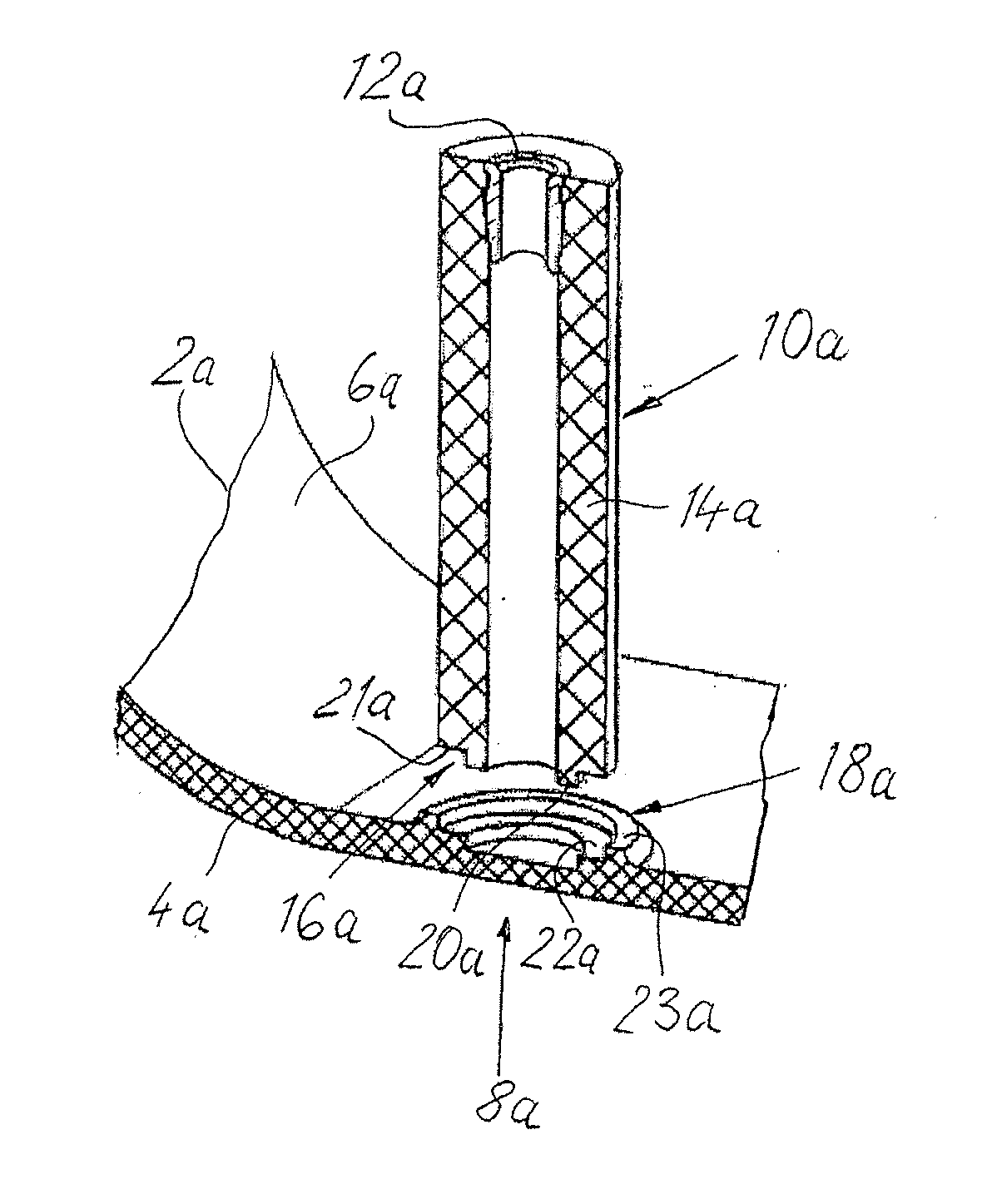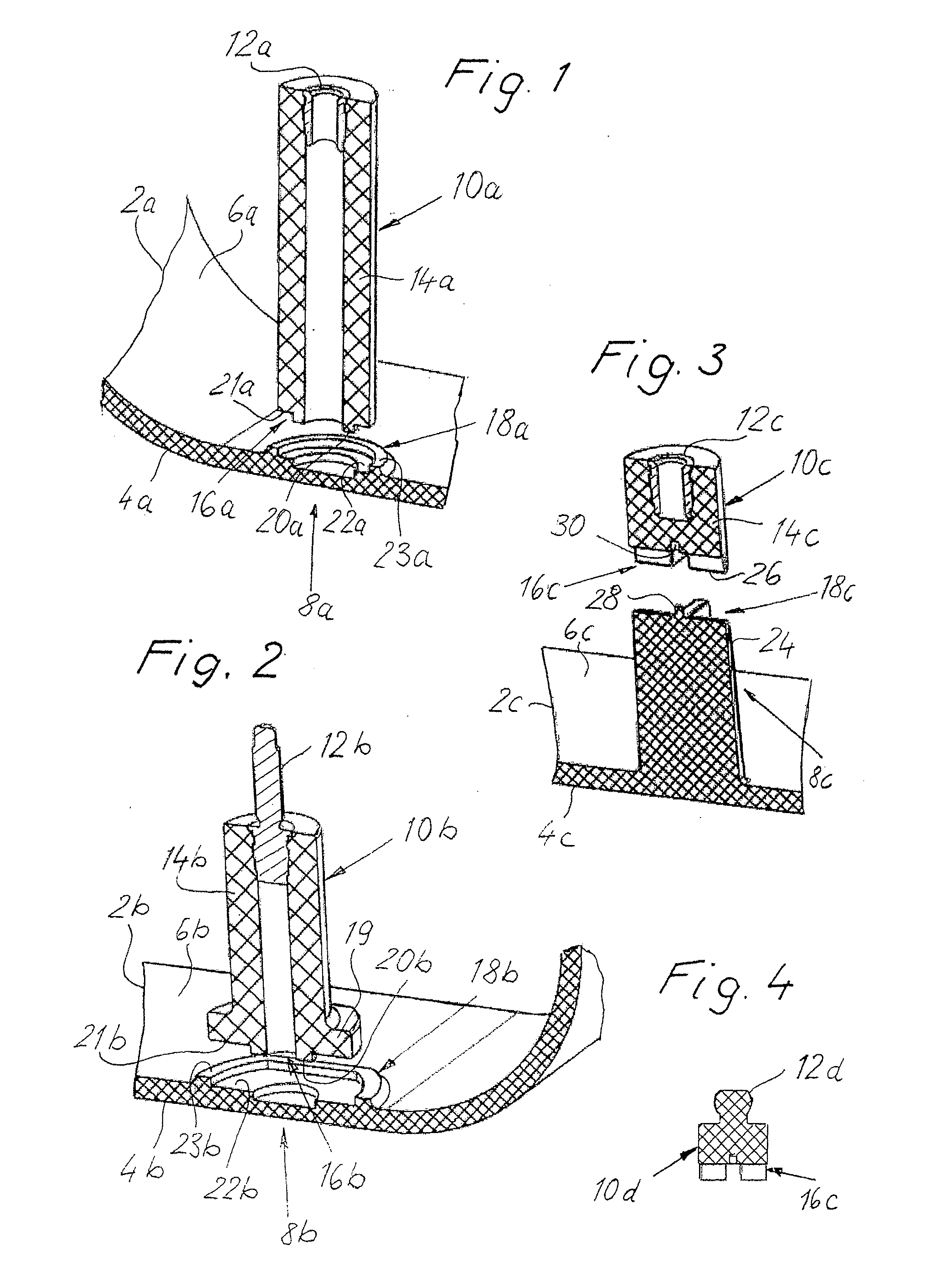Method for producing a fastening arrangement of a fixing dome on a thin-walled component
- Summary
- Abstract
- Description
- Claims
- Application Information
AI Technical Summary
Benefits of technology
Problems solved by technology
Method used
Image
Examples
Embodiment Construction
[0022]In FIG. 1, a part of a thin-walled component 2a, with a visible side 4a (exterior side) and an inner side 6a, is indicated. A fixing dome 10a, which on its upper end area is provided with a fastening element 12a, is to be mounted on the inner side 6a of the component 2a, in a fastening area 8a.
[0023]The thin-walled component 2a is, in particular, a housing, although, other thin-walled components also come into consideration, as was already explained in the preceding.
[0024]The term “fixing dome” is to be understood as any arbitrary column-shaped structure that in the mounted state projects from the inner side 6 of the component 2a. In the represented exemplary embodiment, the fixing dome 10a is composed of a sleeve-shaped body 14a with a circular cylindrical outer surface and a circular cylindrical inner surface. It is understood that housings with large volumes or components with large surfaces are provided with a plurality of such fixing domes, which serve to fasten the comp...
PUM
| Property | Measurement | Unit |
|---|---|---|
| Thickness | aaaaa | aaaaa |
| Diameter | aaaaa | aaaaa |
| Shape | aaaaa | aaaaa |
Abstract
Description
Claims
Application Information
 Login to View More
Login to View More - R&D
- Intellectual Property
- Life Sciences
- Materials
- Tech Scout
- Unparalleled Data Quality
- Higher Quality Content
- 60% Fewer Hallucinations
Browse by: Latest US Patents, China's latest patents, Technical Efficacy Thesaurus, Application Domain, Technology Topic, Popular Technical Reports.
© 2025 PatSnap. All rights reserved.Legal|Privacy policy|Modern Slavery Act Transparency Statement|Sitemap|About US| Contact US: help@patsnap.com


